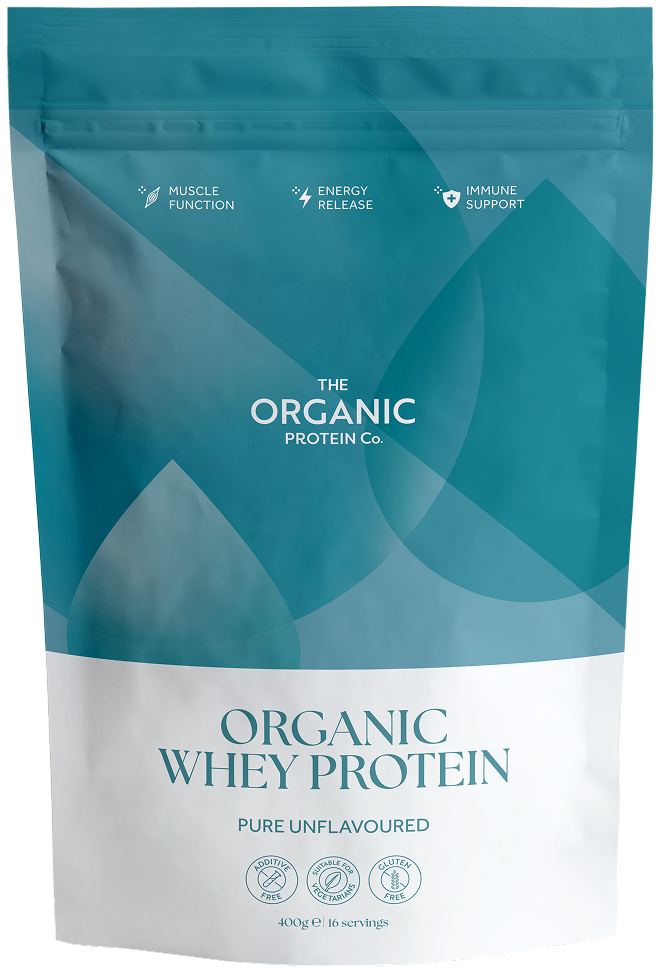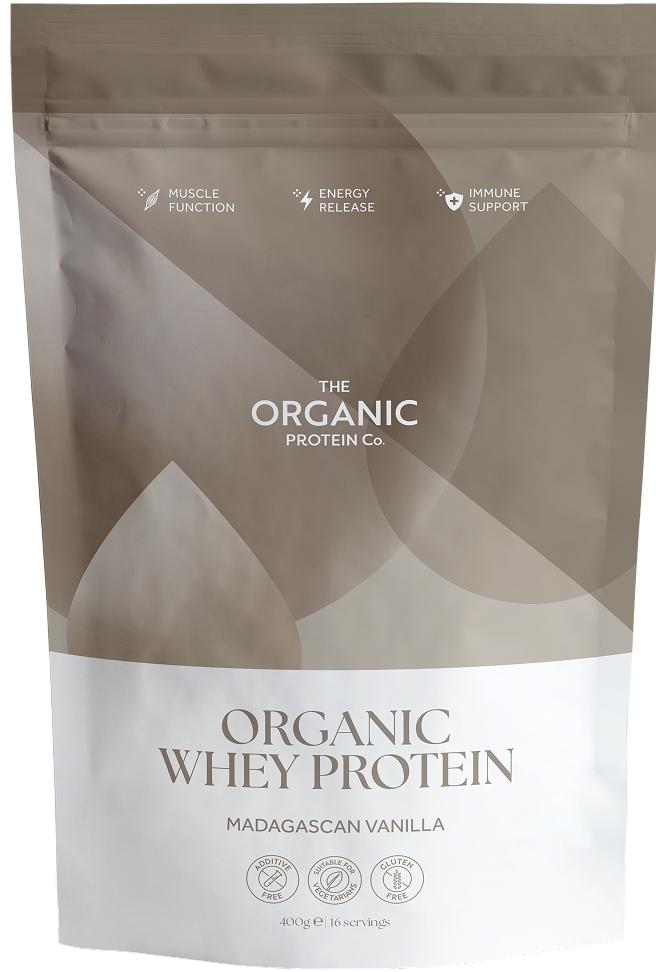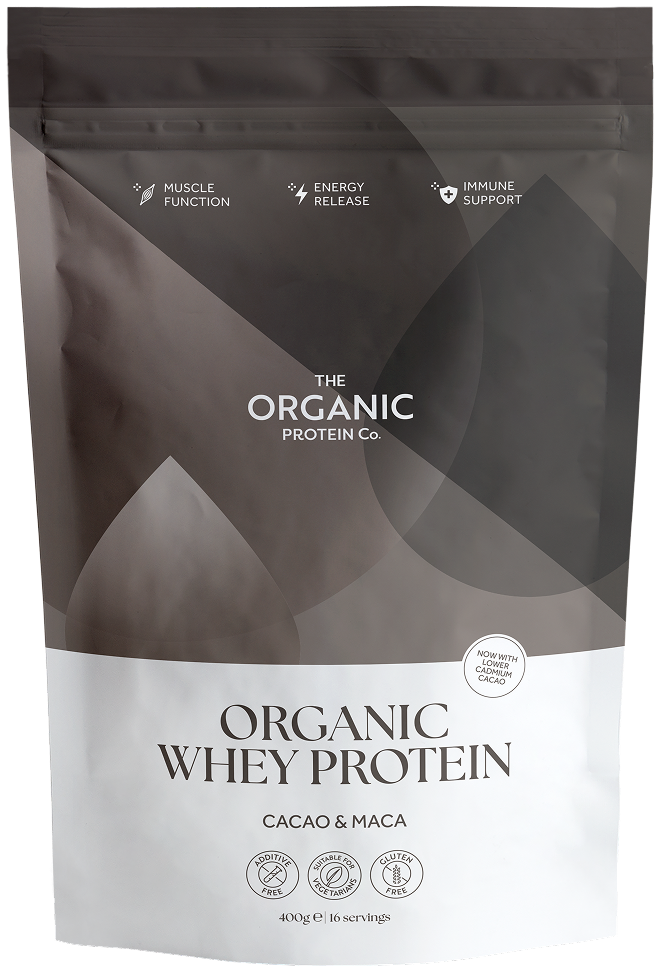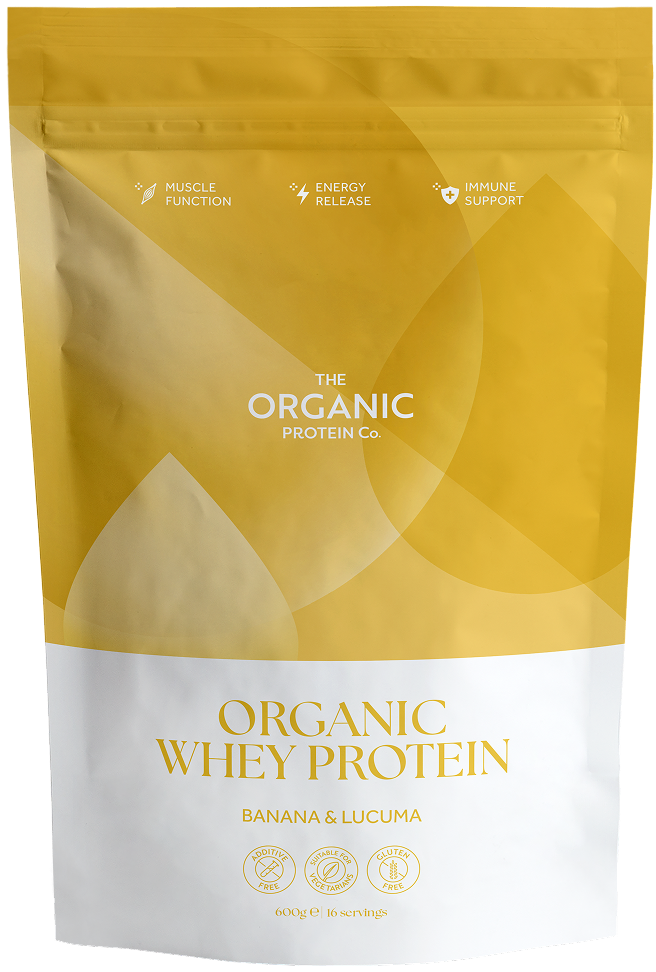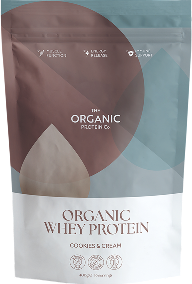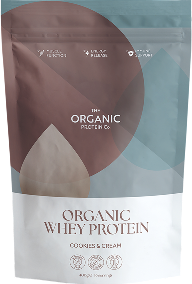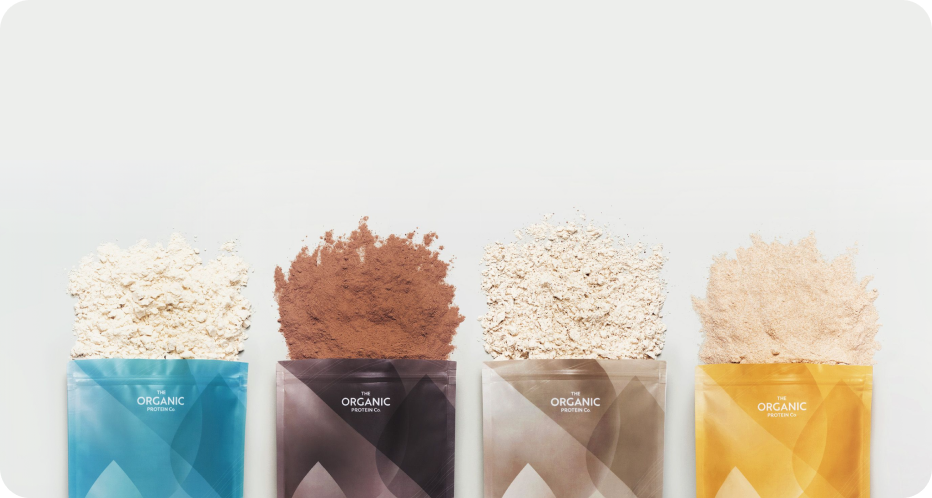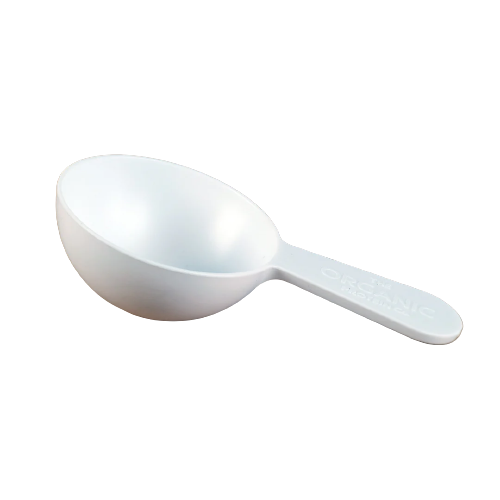As we age, there’s naturally more we must consider to keep ourselves fit, mobile and able to enjoy life to the fullest for as long as possible. Protein plays an important role in this, becoming a key component of our approach to healthy ageing.
If you’re considering whether - and indeed, how - a protein powder might be able to help support you in remaining active in your later years, read on to find out more. We’ll give you more information about the latest knowledge on the subject, and tips on choosing the best protein powder to suit your needs.
Why is protein important in later life?
Protein has a hugely important role in the optimal functioning of our bodies no matter our age. While exact recommendations can differ, some studies have shown that protein requirements might increase as we age (1,2,3).
In some of these studies, the recommendations for protein intake for those 65 and up was 1.0 to 1.2 g of protein per kilogram of body weight per day, increasing to 1.2 to 1.5 g per kilogram of body weight per day for those with acute or chronic diseases.
As well as the usual functions of protein in the body, protein is a particularly important nutrient in later life because:
Older adults may not be able to use amino acids as efficiently as younger adults (4,5), requiring a higher protein intake to support muscle health.
Maintaining or increasing protein intake in later years can help preserve muscle mass, supporting mobility and functioning, such as being able to continue carrying out everyday activities (6).
It can help to strengthen immune function and support wound healing (7), key to staying healthy and fighting illness as we age.
Protein intake can play a part in the slowing down of natural or accelerated muscle loss as we age (8).

Protein and sarcopenia
One of the key factors in an increased need for protein as we age is the impact of what’s called sarcopenia.
Sarcopenia is defined by the loss of muscle mass from our 30s onwards. This affects the musculoskeletal system and can increase the likelihood of falls and fractures in later life. While the gradual loss of muscle mass is a natural part of ageing, muscle mass decreases approximately 3-8% per decade after the age of 30. Sarcopenia accelerates the process, and rates of muscle loss can be higher than this after the age of 60.
While sarcopenia doesn’t impact everyone to the same extent - estimates on how common it is vary - some of the causes of this muscle loss are physical activity, a reduction in hormone levels and an inadequacy of protein intake (9).
How can protein powders help?
While it’s typically recommended to get your protein intake from a range of different sources, most importantly from whole foods that offer additional nutrients, there’s growing interest in the benefits of protein powder as a way to increase protein intake as we age (10).
Some studies have pointed out that increasing protein intake, alongside regular movement and activity, can contribute to the health and maintenance of muscles during ageing (11).
As our appetite can reduce as we reach midlife and later years (12), reducing the quantity of food we eat, protein powders - for example, in the form of a protein shake or smoothie - can be a quick and simple way to maintain or increase your protein intake without needing to consume large quantities of food when your appetite is low. Research suggests incorporating them doesn't have a negative impact on appetite by reducing it further or reduce overall energy intake.

How to choose the best protein powder in later years
There are a whole variety of protein powders available, and there’s not necessarily one best protein powder for everyone over the age of 55. However, by keeping in mind some of the below points, combined with speaking to your doctor or dietitian, you can feel more confident choosing an option that fits your needs.
Protein source and quality
The source and quality of the protein in your protein powder is one of the most important things to keep in mind. By this, we mean what the protein powder is made from (such as whey, egg whites or pea protein), its amino acid and branched-chain amino acid profile, and how easily it can be digested, absorbed and used by your body (what’s known as its bioavailability).
Research into this has leaned towards whey protein and soy protein as the highest-quality proteins available for older adults (13,14). This is because, as well as being complete protein sources with all 9 essential amino acids, both are rapidly digested and absorbed by our bodies. Plant-based proteins may have less of a muscle-building effect due to their lower digestibility and lower essential amino acid content, in particular leucine.
One study has suggested that whey protein, with higher levels of the branched-chain amino acid leucine, is particularly beneficial for supporting muscle health in comparison to casein, soy and pea protein isolates (15).
Transparent ingredient lists
As well as the protein source, taking stock of the ingredients in a protein powder can help you choose the best option for your overall health. For example, avoiding protein powders with added sugar can help you maintain your well-being and avoid the risks of excess sugar in your diet, balancing protein intake with calorie intake (16).
Opting for a protein powder that is genuine and transparent about what goes into the supplement is crucial. You might want to seek out options that avoid artificial additives or use only natural ingredients, for example - by making sure to at least have a glance at the information on offer, you can be more confident in exactly what you’re consuming.

Taste and texture
The quality of the protein powder you opt for is just one of the factors to consider. Beyond this, taste and texture are non-negotiables when it comes to actually enjoying consuming it.
Look out for a variety of unflavoured and flavoured options. Unflavoured protein powders, such as our Pure Unflavoured option, can be great for adding to meals where you want a protein boost - such as soups and stews - while flavoured options are a great choice when you’d prefer a dash of deliciousness for a breakfast smoothie.
We’d recommend looking out for protein powders which use natural ingredients over artificial flavours, which can add an unwanted taste to your protein powder.
Allergens
When choosing the best protein powder for you, considering where it comes from will help you identify if it will trigger any of your allergies or digestive sensitivities. Some key sources to keep an eye out for include:
Whey and casein: Both whey and casein come from cow’s milk. This means that those with a milk allergy or intolerance may experience issues with these types of protein powder. However, whey protein allergies aren't common and lactose levels are generally much lower than in milk.
Soy protein: Those with a soy allergy should avoid soy protein powder and opt for a non-soy source.
- Gluten sensitivity: Those with a sensitivity to gluten should lean towards products that actively avoid gluten contamination in their processing and packaging methods.

Find the best protein powder for your long-lived vitality
Choosing the right protein powder as a senior is about supporting your health and enhancing your quality of life as you age. By focusing on high-quality, easily digestible protein sources and considering your specific dietary needs, you can maintain muscle health, manage your energy levels and enjoy your everyday activities.
While there is no one best protein powder for everyone, take into consideration the above points to choose the right option for you.

